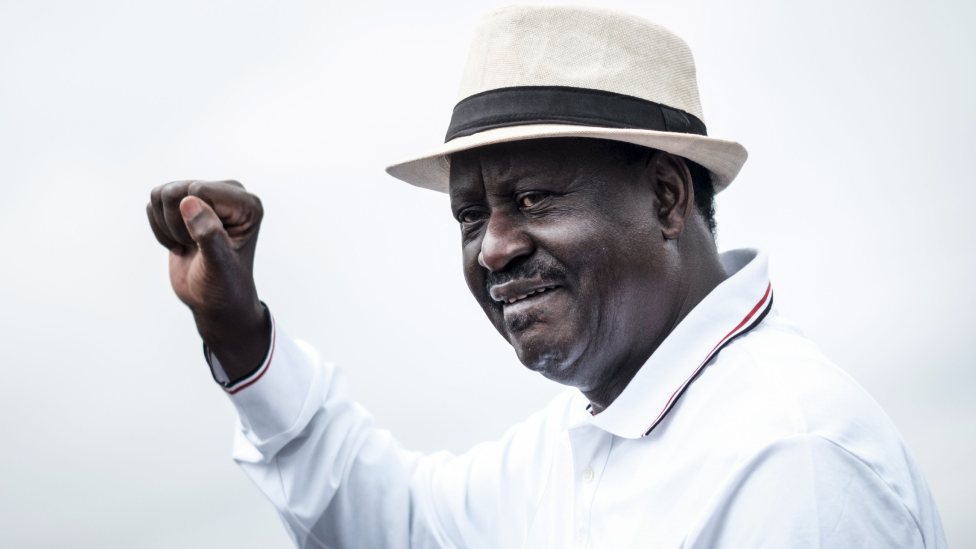In law, repetition is often used for clarity. French thinker and author André Gide (1869–1951) rightly opined, ‘‘Everything that needs to be said has already been said. However, since no one was listening, everything must be said again.’’
I hereby request your permission to paraphrase a statement I made about two years ago.
On September 19, 2022, a few weeks after the Kenyan General Election and the subsequent Supreme Court petition verdict in which former Prime Minister Raila Odinga lost to incumbent President William Samoei Ruto, I authored an article entitled ‘‘Open Letter to Raila Amolo Odinga,’’ published in the Citizen Weekly newspaper, Volume 25, No 37, Page 5.
In that piece, I distinguished between President Ruto and Raila. I invoked the famous words of former United States First Lady Roslyn Carter: ‘‘A leader takes people where they want to go. A great leader takes people where they do not want to go, but ought to be.’’ I described Raila as a greater leader who wants to take the people where they do not want to go, but ought to be.
Devotedly, Kenyans elected President Ruto to take the country where it is politically, socially, and economically.
Kenyans, however, did not vote for Raila largely because he is a great leader who wants to take the people where they do not want to go, but ought to be. Because I am aware that Raila is a great leader, I wrote to encourage him not to give up.
In support of my advice to Raila to continue serving Kenyans and Africans in general, I reminded him of the inspirational political journey of former US President Abraham Lincoln, who failed in elections six times but ultimately won in his seventh attempt.
First, in 1838, Lincoln was defeated for the state legislature. In 1849, he was defeated in the nomination for Congress. In 1849, he was rejected for the position of land officer. Fourth, in 1854, he was defeated for the Senate seat.
Fifth, in 1856, he was defeated again in the nomination for vice president of the US. In 1858, Lincoln was again defeated for the Senate, and in 1861, he was elected President of the US.
On August 27, I penned an opinion entitled, ‘Kenya’s rejection of Raila Odinga’s presidency is a blessing in disguise for Africa.’ Raila’s fifth rejection by Kenyans was normal because, as a political prophet, he ought to be rejected by his own country. In Mark 6:4-6, the Bible says, ‘‘A prophet is not without honor except in his hometown, among his relatives, and in the streets where he played as a child.’’
In 2024, when Raila decided to vie for the AU Commission Chairperson position, I became excited because he had listened to the aforementioned advice. I still believe that even though Kenyans rejected him in five presidential elections, African presidents will vote for Raila as AUC chairperson.
On August 27, 2024, Raila launched his candidature and campaign with a clear vision to take the African people where they might not want to go, but ought to be. So far, he has traversed the continent, discussing and distributing his manifesto to African leaders.
During the launch of his candidature in Nairobi, Raila christened himself the “Lion of Africa,” ready to roar against the challenges facing the continent.
Raila envisions a united Africa characterized by peace, prosperity, and sustainable progress for all.
Raila was a founding member of Kenya’s ‘‘Young Turks,’’ who fiercely clamored for the country’s second liberation.
In his widely serialized vision, Raila eloquently stated, ‘‘We must harness our vast human resources and integrate the energy of our youth with the vision and wisdom of our leaders.’’
In the book How and Why Raila Odinga Can Win the AUC Chairmanship Against the Hurdles, lawyer Kennedy Mongare mentions that ‘‘Raila Odinga’s vision is inseparable from his commitment to democratic governance.’’
Throughout his long political activism, Raila has been a proponent of democratic ideals and values such as human rights and the rule of law.
Raila is facing challenges from candidates from Djibouti and Madagascar: Mahmoud Yusuf and Richard Randriandrato. Fortunately, the duo are considered underdogs, given Raila’s extensive experience in various national and continental positions.
The writer, Dak Buoth Riek-Gaak, is the National Chairperson of Legal and Constitutional Affairs of the South Sudan People’s Movement (SSPM). He can be reached via eligodakb@yahoo.com
The views expressed in ‘opinion’ articles published by Radio Tamazuj are solely those of the writer. The veracity of any claims made is the responsibility of the author, not Radio Tamazuj.




